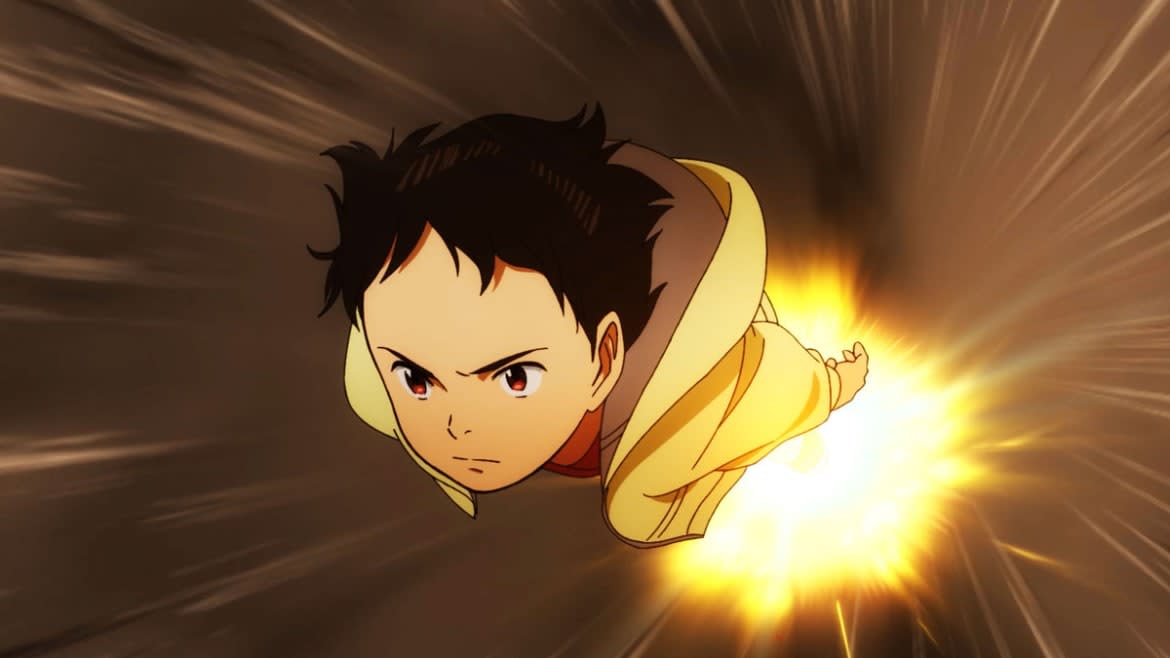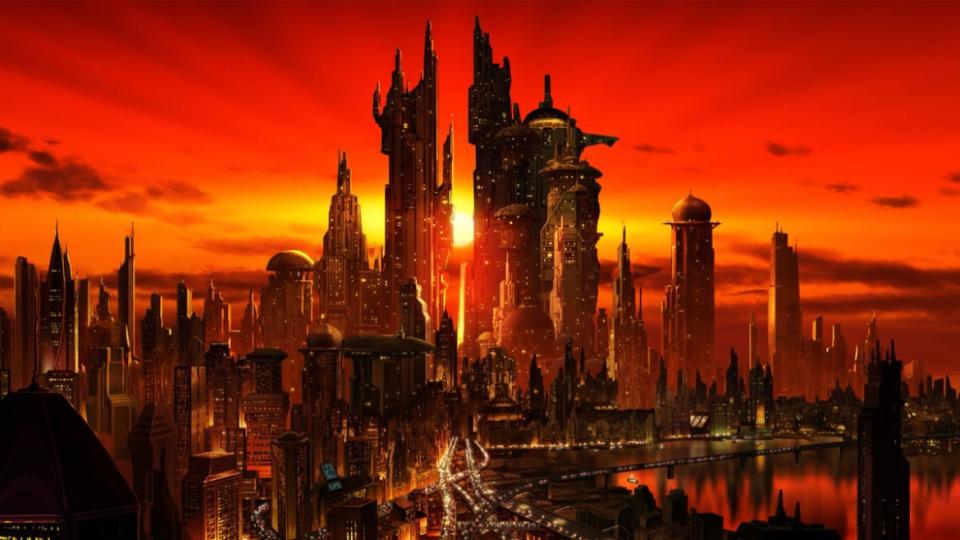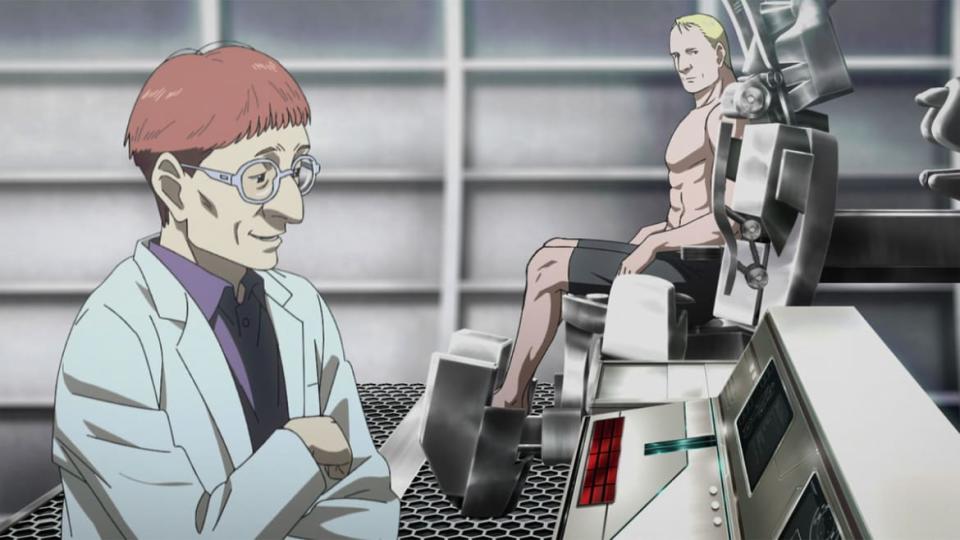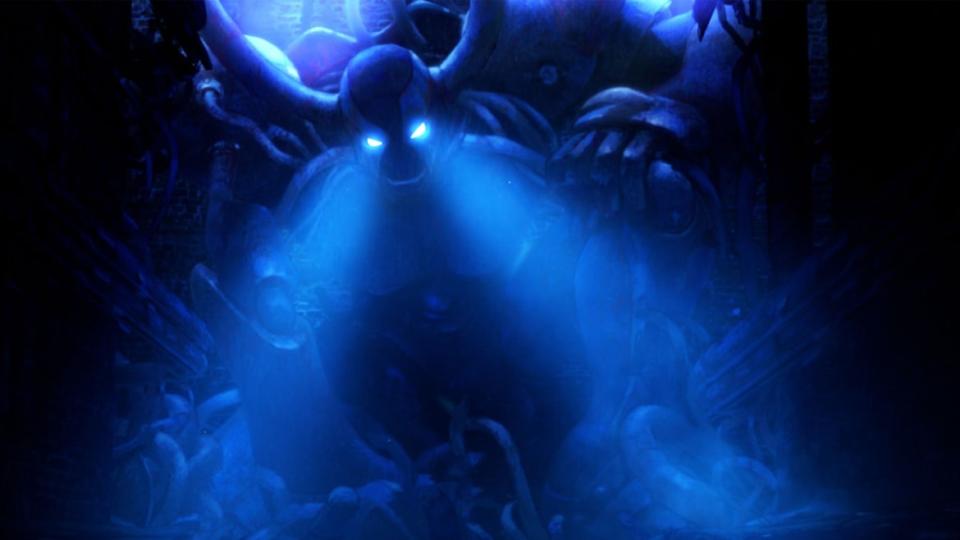Why Did Netflix Bury ‘Pluto,’ Its Best New Show?

Despite Pluto being the first major adaptation of a widely acclaimed manga, you’d be forgiven for having no idea that the anime had premiered. The eight-episode drama is gripping, moving work, no matter the medium. But as an animated series—and an anime at that—with a methodical pace, less mainstream name recognition, and targeting a more mature audience, Netflix has done little to promote it.
Pluto dropped onto Netflix Oct. 26 more quietly than a pin dropping onto the floor. There were few, if any, reviews out on the day of its release; it never appeared in Netflix’s self-reported Top 10 lists. If it showed up on your Netflix homepage, count yourself among the privileged few.
This tepid rollout is a shame for numerous reasons. Perhaps the most obvious one is that Pluto, based on the manga by award-winning creator Naoki Urasawa, is excellent. The series hews closely to the original work, which itself draws on one of the most famous comics and animated series of all time: Osamu Tezuka’s Astro Boy. Urasawa reimagined one of Astro Boy’s story arcs, in which a super-strong robot named Pluto goes on a murder spree of both humans and other super-strong robots. Among those robots is Astro Boy, also known as Atom in the original Japanese version of the series; that’s the name Urasawa refers to the character by.
But instead of focusing on how Atom fights back against Pluto’s rageful quest, Urasawa pivots the action story into a science fiction-tinged murder mystery. Pluto follows Gesicht, a high-functioning humanoid robot working with Europol assigned to the Pluto case. As an advanced robot himself, getting tangled up in events targeting friends and familiar faces drudges up surprising emotions for Gesicht, whose artificial intelligence seemingly precluded emotions in the first place. Through his investigation, he crosses paths with the entrancing mundanity of human life; the stunning hatred that lives within much of humanity; and the complicated nature of his own life and memory.

Focusing on deepening the robots—to the point where it can be hard to distinguish between them and the character—renders Pluto a powerful reinterpretation of the Astro Boy storyline, exploring thematic nuances that makes it more appealing to an older audience. Over the course of eight hour-long episodes (in accordance with the eight volumes of manga), the anime luxuriates in the character-building details that populate Urasawa’s work. The quiet moments where robots and humans shed tears together, confront each other’s biases, and mourn for the crumbling darkness of society outnumber those that another animated series would delight in expanding: any actual action or combat between robots.
A scene where Gesicht has lunch with Atom, who presents as a young boy despite possessing a highly superior intellect, is especially stunning in animation, for example; we’re given more time to study Gesicht’s shocked reaction to Atom seemingly eating food, which robots shouldn’t be able to do. Atom’s successful mimicry of human behavior endears us to him in a way that makes his fate hit even harder, taking the show to one of its emotional peaks early on. Through sharp animation and a smartly deployed suspenseful score, Pluto ensures we remember the feelings more than the fights themselves.

Yet even with its critical bona fides and its relationship to Astro Boy, Pluto has landed on Netflix to seemingly little fanfare. This isn’t always the case with anime on Netflix. Exclusive series like Cyberpunk Edgerunners, Kotaro Lives Alone, and JoJo’s Bizarre Adventures are a sampling of what the Netflix algorithm regularly serves, and One Piece has gotten a big push following the show’s live-action adaptation. But something about Pluto’s comparatively slow pacing, hefty runtime, and heavy themes (this is an international political thriller/murder mystery about incredibly lifelike AI’s inner philosophical conflicts in the wake of large-scale war, after all) tells me that the algorithm isn’t fit for this one.

While outlets that typically cover anime have been singing Pluto’s praises, I haven’t seen much chatter in the so-called mainstream media. Whether that says more about anime’s continued marginalization in the larger content sphere or Netflix’s disappointingly quiet release of the series, I can’t decide.
But for anyone looking for a fresh, thought-provoking drama to watch on the streamer—especially now that Love Is Blind is over (this is a joke)—Pluto is far and away the best bet. It’s not just a great anime; it’s great television. Netflix should be proud of what it has with this one.
Keep obsessing! Sign up for the Daily Beast’s Obsessed newsletter and follow us on Facebook, Twitter, Instagram and TikTok.
Get the Daily Beast's biggest scoops and scandals delivered right to your inbox. Sign up now.
Stay informed and gain unlimited access to the Daily Beast's unmatched reporting. Subscribe now.

